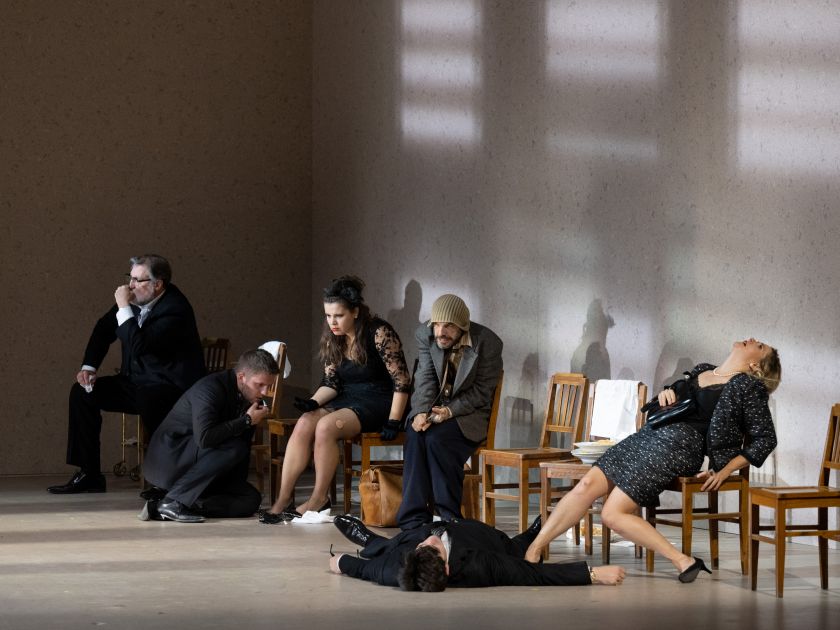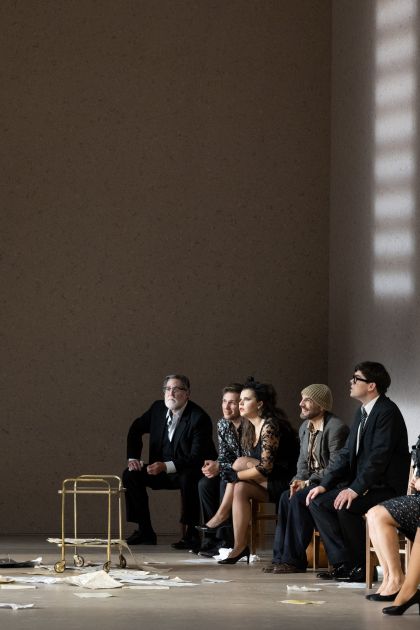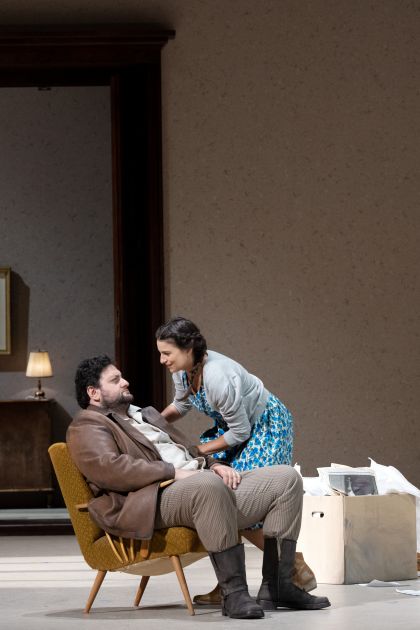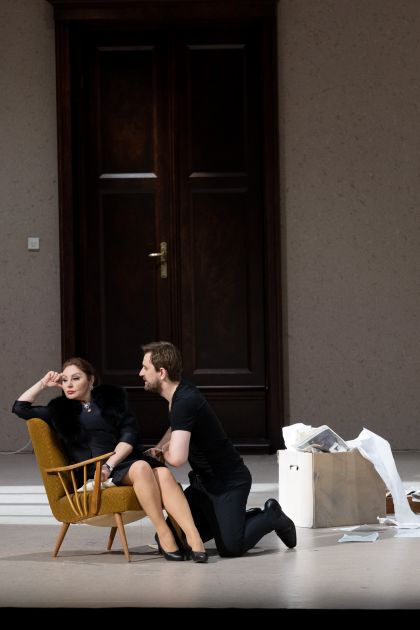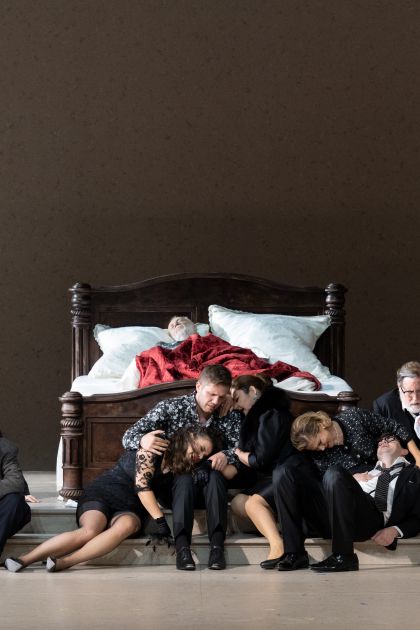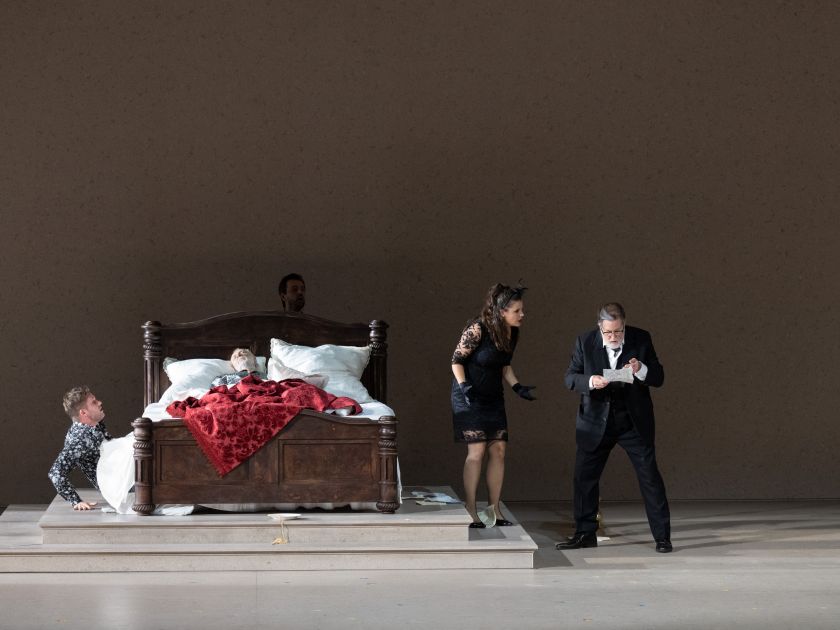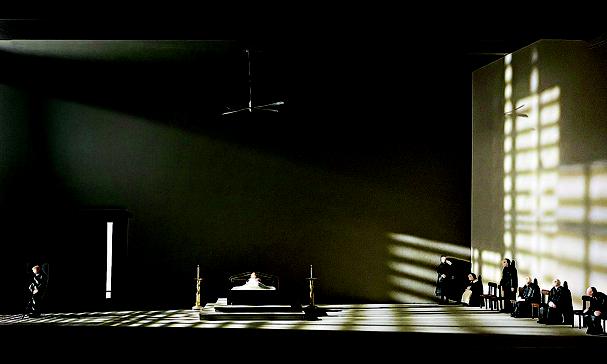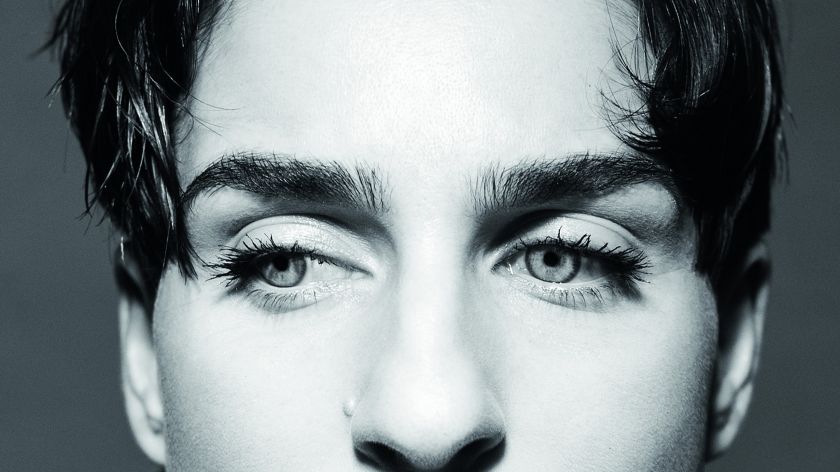Geschrieben mitten im Ersten Weltkrieg, erlebt Il trittico seine Uraufführung am 14. Dezember 1918 in New York. In einer Zeit der Krise, in der alle Werte in Frage gestellt sind, erscheint einem Komponisten wie Giacomo Puccini Dantes Divina Commedia vielleicht als ein nicht ganz fernliegender Referenzpunkt, der Orientierung geben kann.
Il trittico — das „Triptychon“ — besteht aus drei Einaktern, die auf den ersten Blick keine Verbindung miteinander haben. Allerdings wird, wenn man sich in die Erzählstruktur hineinbegibt, ein übergeordnetes Koordinatensystem erkennbar. Aufgespannt zwischen Himmel und Hölle und einer niemals endenden Wartesituation, die fortwährend einen Ausweg verspricht — dem Fegefeuer —, porträtieren die drei Einakter verschiedene Facetten der Existenz, einzelne Schicksale aus einer Welt, die wenig Hoffnung bereitzuhalten scheint. Das Thema, das die Werke verbindet, sind die jeweils in anderer Gestalt und in anderem Kolorit erscheinenden Systeme, in denen Menschen gefangen sind. Es sind die Mahlwerke der Unfreiheit, die hier beschrieben werden.
In Gianni Schicchi, mit seiner spielerischen Leichtigkeit, erschallt grell ein überbordendes Lachen, wie es nur in der Hölle zu hören sein kann. Wir sind in Florenz, im Haus des gerade verstorbenen Buoso Donati. Die versammelte Verwandtschaft — aristokratisch und verkommen — sieht sich nach dem Auffinden des Testaments um das reiche Erbe gebracht. Nach einigen Widerständen einigt man sich, einen missliebigen Zugereisten, den gerissenen Gianni Schicchi, um Hilfe zu bitten. Dieser treibt ungehindert sein Unwesen — nicht ohne Grund tobt er bei Dante als eine Art dunkler Poltergeist durch das „Inferno“: Gianni Schicchi sprengt das herrschende System, bricht jedes Tabu, respektiert weder Tod noch Leben und bringt die Erbschleicher erneut um ihr Erbe — alles im Geiste einer schwarzen Komödie. Schicchis Tochter Lauretta ist ein junges Mädchen, das nichts von dem verbrecherischen Treiben rund um sie erfährt. Mit ihr und ihrem Verlobten aus der Donati-Familie, Rinuccio, wird eine neue, vielleicht bessere Zeit anbrechen.
In Il tabarro (Der Mantel) sind wir vom faulenden Geruch der Seine umgeben und im Fegefeuer auf Erden angelangt. Puccini siedelt das Stück in seiner Gegenwart an, in Paris, in einem realistischen Milieu zwischen Hafenarbeitern, Trinkern und Huren — als hätte Georges Simenon Pate gestanden. In der drückenden Atmosphäre der Ausweglosigkeit entspinnt sich eine Dreiecksgeschichte zwischen Giorgetta, ihrem Ehemann — dem Kapitän Michele — und dessen Arbeiter Luigi. Giorgetta ist eine Frau, die schon eine Lebensgeschichte hat. Sie ist eine Mutter, die ihr Kind verloren hat und deren Ehe vor dem endgültigen Scheitern steht. Sie beginnt ein Verhältnis mit Luigi, mit dem es ihr gelingt, momentweise ihrem trüben Alltag zu entfliehen. Aber sie ist zerrissen — zwischen dem Wunsch, ihre Ehe zu retten, und der Sehnsucht, ein neues Leben zu beginnen. Der eifersüchtige Ehemann tötet schließlich den Liebhaber seiner Frau und beendet jede Träumerei. Mit Il tabarro wird das unabänderliche Dunkel der menschlichen Existenz zur Gänze ausgeschritten.
In Suor Angelica hat sich die Perspektive auf das tragische Schicksal einer einzelnen Figur, der jungen Nonne Angelica, zugespitzt. Sie wurde zur Strafe für einen Fehltritt ins Kloster verbannt, fristet freudlos ihr Leben und wartet auf Nachricht von ihrem Sohn, den sie seit der Geburt nicht mehr sehen durfte. Als sie erfährt, dass er gestorben ist, beschließt sie, ihrem Leben ein Ende zu setzen. Der Höhepunkt der Oper ist ein ausgedehnter Monolog von 20 Minuten, in dem sich Angelica als gläubige Katholikin durch ihre Zweifel hindurcharbeitet und von ihren Gewissensbissen befreit. In einem erlösenden Ende gelingt es ihr, all ihren Schmerz zu transzendieren und ihrer Marter zu entfliehen. In einem überstrahlten Finale hält Puccini ihr einen Weg in die Sphären des himmlischen Paradieses offen.
Yvonne Gebauer
mehr dazu
weniger anzeigen

